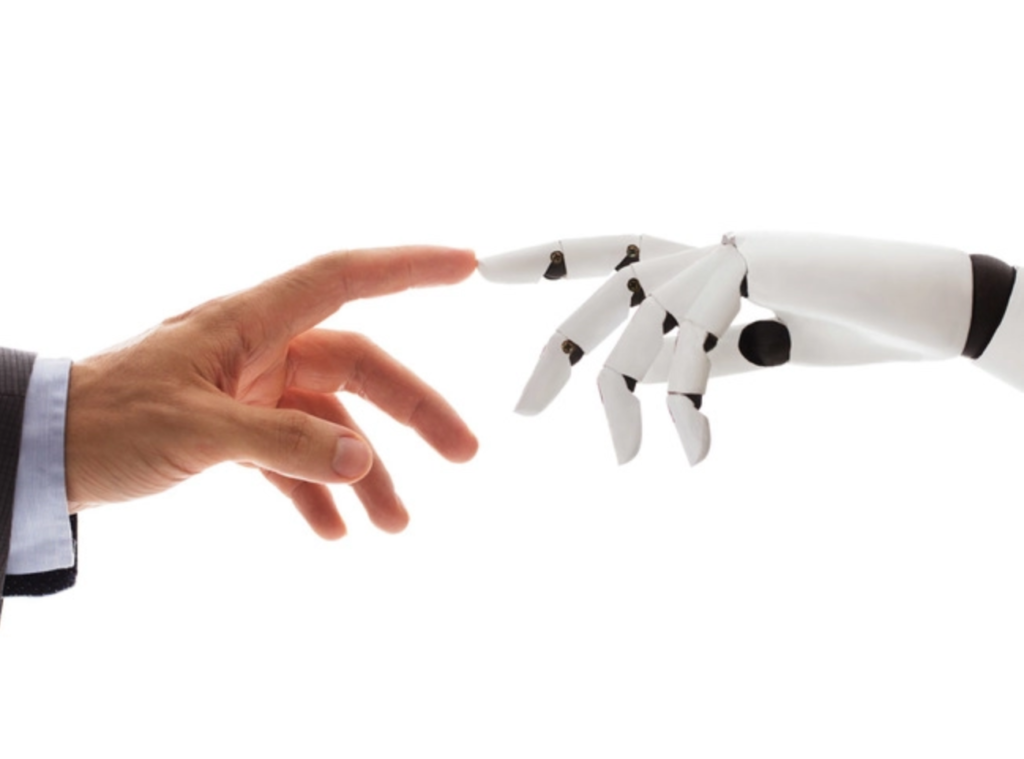Are we trying to be the next Superman?
From Virtual reality(VR) down to Human-computer interface(HCI), and just smartphones, one undeniable truth is that technology never stops evolving. We see this evidence in the birth of the iPhone in 2007 when Steve Jobs claimed that it would revolutionize the industry.
Well, Steve certainly wasn’t lying. Here are 10 ways Apple changed the world.
The age of smartphones did revolutionize our interaction with computers and eventually became a massive part of our everyday lives. Now, they’re so important they’re a necessity.
Must-haves, if you prefer.
But what does this have to do with the subject?
From the creation of the computer’s first inconvenient designs, with inconvenient meaning loud whirring machines in our homes and offices, we have far switched to more silent and portable devices. And you can take a look at how this Mobile Phone Creator reflects on how we use our portable devices, for further insight.
Although, among all these changes into a more futuristic world, we still consider a few things to be sort of “taboo” in the future of technology. Taboos like Human Augmentation.
What is an augmented human being?
There are a lot of misconceptions about this topic. But let’s slow down the rumor train for a few seconds to get our facts right. As humans, it’s an undeniable fact that we’ve sought ways to improve ourselves for centuries.
And we don’t necessarily mean something along the lines of trying to be the next superman. That’s just absurd.
But just think about hearing aids to amplify bad hearing, magnifying lenses to increase the short range of view, glasses to boost lousy eyesight. These are all tools that are part of the human augmentation program.
Is human augmentation possible?
Techopedia defines it as:
“…generally used to refer to technologies that enhance human productivity or capability, or that somehow add to the human body”.
Techopedia
So, you see? We’re not trying to be Superman. Well, we weren’t, at first.
But now, advancements in technology are leading us to a future that will strongly interplay with Artificial Intelligence. If you’re a stranger to the concept of AI, our article about AI for the mentally unstable will explain it better.
Anyway, what humanity seeks, at this point, is the kind of technology that doesn’t just build stuff anymore. But can link to our brains and enhance our mental and physical abilities.
Basically, a symbiosis of human and machine. Ridiculous? Yes.
Crazy? Absolutely. But to make this a lot less so, let’s understand how Human augmentation actually works.
Applications Of Human Augmentation.
Human augmentation currently exists in three forms:
Reproductive
Reproductive enhancements such as embryo selection, and others, are used to check for any irregularities or changes in the DNA structure. This is a crucial factor in the future of Data storage, if we might add, especially since humans could be the next Hard Drives.
It all helps to create a healthy society, starting from birth. And it begins with making parents less concerned about birth deformities.
Like their child coming out with four heads. Spooky.
Physical
On the other hand, physical enhancements involve plastic surgeries, performance-enhancing drugs, prosthetics, organ replacements, etc. All with the intentions of a seamless symbiotic relationship, you’d almost feel like they’re parts of yourself and not just extensions.
Although, it’s going to require a lot of getting used to. Just ask anyone using glasses.
It can get very uncomfortable. So, we can’t wholly replace our natural assets.
That is one downside to Human Augmentation.
Mental
Mental enhancements include neurostimulation, wearable devices. E.g., augmented reality glasses, smartwatches, personal drones.
With all this technology to improve our touch interaction with a virtual world, you’ll get to experience the power of faux telekinesis through direct communication between the brain and any external device. You’ll get control and the power to interact with your devices without physical contact.
You could change DSTV channels with just a single thought, ask Siri to play music without talking, which might give speech recognition a run for its money. The possibilities of Human Augmentation are endless.
You can learn more on what Speech Recognition is here.
Now, the big question.
Is human augmentation ethical?
The idea of surpassing our limits with just our thoughts and ideas is exciting. And also scary.
There are a lot of things to be worried about. So anyone would be wise to consider the cons of Human Augmentation before engaging it.
We wouldn’t want a Terminator problem on our hands, or a robot coming back from the future to obliterate all humans. Now, that would be a disaster.
Human augmentation breaks through the very idea of limitation, and that’s the problem. A human without limits is a very dangerous being.
We’re talking about an extended reality where anything is possible. And let’s not forget how AI is already threatening jobs. Every day, the threat grows larger.
Even Elon Musk says AI will make jobs irrelevant in the future. Soon, a significant part of the workforce would have more robot-like creatures than actual humans.
Job qualifications began from needing people who knew how to drive. Then it became who knew how to use a computer.
Who is to say it’s not going to evolve to needing someone who can solve a Rubix cube within a second? This means that many people would be forced to adapt to the change, which will bring along other issues like morality.
Ethical issues will arise, as well. A study conducted by SIENNA revealed that people expect more inequality in society due to an increase in AI interference with human life.
And as for other Human Augmentation puppets like plastic surgery, many people consider those things to go against their moral standings and cultural beliefs. E.g., Africans. But has cosmetic surgery come of age in Africa?
If it all becomes a possibility, and we’re still arguing whether this future would be accepted or not, would the roles be reversed where ordinary human beings become outcasts?
Will society accept you without you undergoing Human Augmentation? Or would it be forced on you, eventually?
In summary
What we fear the most is a society where regular humans and augmented humans would be at war with each other. Some might argue that it’s not our problem yet.
But the future generation might have to deal with it.
What role do you think Human Augmentation will play in the future?






